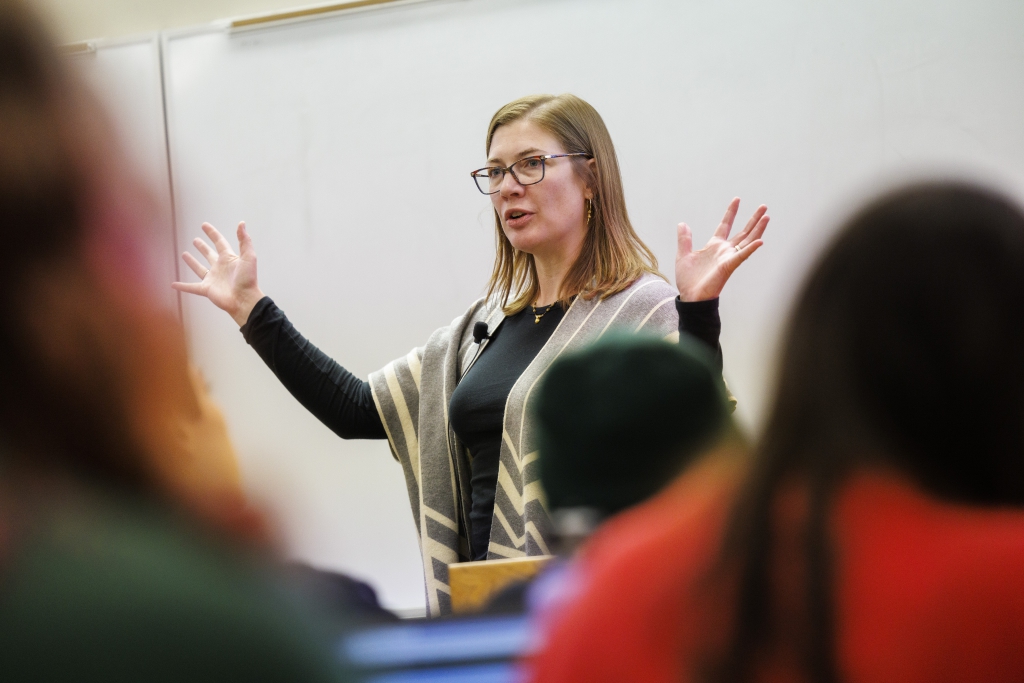Dan Moser, January 4, 2024
Nebraska program aims to help students make critical ag, natural resources decisions
Today’s youth will someday be making decisions that affect agriculture and natural resources systems. The University of Nebraska–Lincoln is tapping into the power of gaming to lead a program designed to teach youth how to responsibly make those decisions, while being aware of factors such as climate adaptation and limited natural resources.
The project, Cultivate ACCESS to Data Science in Agriculture, recently received a $749,825 grant from the U.S. Department of Agriculture’s National Institute of Food and Agriculture to continue supporting a program launched in 2018.
“We’re focused on developing student abilities and agency in using data related to agriculture and natural resources,” said Jenny Keshwani, associate professor of biological systems engineering and science literacy specialist.
In a culture that is swamped with information — not all of which is 100% accurate — data literacy and systems thinking are essential for making informed, socially conscious decisions about science, Keshwani said.
Her team’s past efforts included development of interactive games and educational modules designed to help students learn how to make scientific decisions and recognize the long-term impact of those choices. The team will use its latest funding to build on that foundation to expand those efforts and develop additional games and tools that students can use to reinforce these lessons, Keshwani said.
The team is now recruiting teachers to use the materials and to help reach 20 high school youth each year of the four-year project, matching them with five college students as mentors.
At the end of their year, the students will draw on their experiences to research and produce multimedia stories and marketing plans to communicate the benefits of agricultural technologies in their local communities, Keshwani said. The top three winners in each category will receive a $100 award.
This approach to learning is fun, Keshwani said, “and I think that is a first step of this process — remembering you’re in a fun brain space.”
Games allow students to test ideas and get instant feedback.
“We can immerse them in a (land) system like a prairie where maybe they have some experience, maybe they don’t, and based on that experience of playing a game, they realize, OK, here’s the situation, here’s the boundaries. Here are the decisions that I need to make and the outcomes that I’m looking for.”
“They get feedback almost instantaneously,” Keshwani said. “Instead of being out in the field doing these things, or maybe it takes a year or a decade to really see the impacts of your decisions, they can try things without consequences if they make a bad decision. And then try out a new strategy the next time they play.”
The games let students understand the different factors they have to balance with their decision making and the consequences for various actions.
Students become system thinkers, able to make holistic decisions about agriculture and natural resources systems, said Keshwani, who figures she was born to her role as a science literacy specialist.
“I like to say I was in Extension in kindergarten because I grew up on a sugar beet farm, and I just thought it was really important to bring a sugar beet to my elementary classroom every single year during harvest to let everybody see what a sugar beet was, and what it tasted like and why it was important,” she said.
Keshwani said Nebraska researchers hope to encourage students to pursue STEM careers.
“It’s one of the things we’re seeing with youth … is that they’re really attracted to careers where they can have a positive impact on the world,” she said. “And so we’re helping them make that connection between the technology and data that’s coming out of agriculture and natural resources and how they can actually do something with that to have an impact.”
Other members of the Cultivate Data Science team are Erin Ingram, science literacy and community engagement coordinator, biological systems engineering; Leah Sandall, associate professor of practice, agronomy and horticulture; Deepak Keshwani, associate professor, biological systems engineering; Erin Blankenship, professor, statistics; Troy Gilmore, associate professor, School of Natural Resources; Heather Akin, assistant professor, agricultural leadership, education and communication; and Mary Emery, professor, agricultural leadership, education and communication and director of Rural Prosperity Nebraska.






